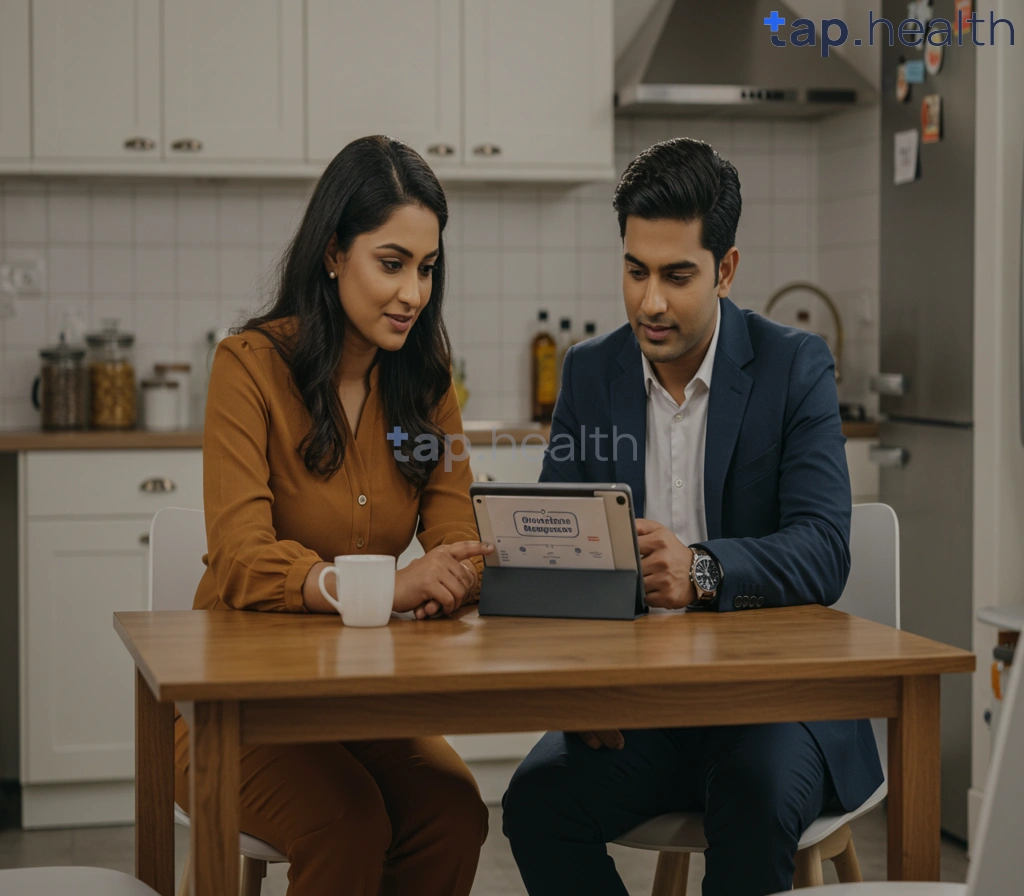Table of Contents
- Deciphering Your Diabetes Numbers: A Practical Guide
- Understanding Blood Sugar Levels: Key Metrics for Better Health
- Diabetes Data: How to Track, Interpret, and Improve Outcomes
- Unlocking Health: Using Your Diabetes Data Effectively
- Take Control: Actionable Steps Based on Your Diabetes Data
- Frequently Asked Questions
- References
Living with diabetes means navigating a world of numbers: blood glucose readings, carbohydrate counts, insulin doses – it can feel overwhelming! But what if I told you that understanding your diabetes data isn’t just about tracking numbers, it’s about unlocking the key to better health outcomes? This blog is dedicated to helping you decipher those vital statistics, empowering you to make informed decisions and take control of your diabetes management. We’ll explore practical strategies and tips to help you interpret your data effectively and, ultimately, live a healthier, happier life. Let’s dive in and discover the power of Understanding Your Diabetes Data: Improving Health Outcomes.
Deciphering Your Diabetes Numbers: A Practical Guide
Understanding your diabetes data is crucial for managing your health effectively, especially in regions like India and other tropical countries where diabetes prevalence is rapidly increasing. The International Diabetes Federation projects a significant rise in diabetes cases, from 536.6 million in 2021 to a staggering 783.7 million by 2045, highlighting the urgent need for better self-management. This increase in prevalence, from 9.8% in 2021 to a projected 11.2% in 2045, underscores the importance of proactive health management.
Key Metrics to Track
Regularly monitoring key indicators such as blood glucose levels (both fasting and post-prandial), HbA1c levels (reflecting long-term blood sugar control), and blood pressure is essential. Understanding what these numbers mean and how they relate to your overall health empowers you to make informed decisions about your diet, medication, and lifestyle choices. For example, consistently high blood sugar levels can indicate the need for medication adjustments or dietary modifications. Regular check-ups with your doctor are vital for interpreting these results accurately and adapting your treatment plan accordingly.
Regional Considerations in India and Tropical Countries
In India and other tropical countries, factors like dietary habits, lifestyle, and genetic predisposition contribute significantly to diabetes risk. Understanding the specific challenges faced in these regions is key to effective management. This includes being mindful of traditional diets, adapting treatment plans to suit local resources and access to healthcare, and being aware of the potential impact of climate and environmental factors on blood sugar control. As you age, managing diabetes can present additional challenges. For helpful advice, check out our guide on Managing Diabetes as You Age: Challenges and Solutions.
Taking Control
Don’t let your diabetes numbers overwhelm you. Empower yourself with knowledge and proactive management. Regular monitoring, coupled with a tailored approach that accounts for your individual circumstances and regional context, is the key to achieving better health outcomes. Consult with your doctor or a certified diabetes educator to create a personalized diabetes management plan that works best for you. Remember, effective management is achievable with the right tools and support. For simple yet effective strategies, explore our article on 10 Proven Tips to Effectively Manage Diabetes | Simple Guide.
Understanding Blood Sugar Levels: Key Metrics for Better Health
Managing diabetes effectively in Indian and tropical climates requires a deep understanding of your blood sugar levels. Consistent monitoring is key to preventing long-term complications. This involves regularly checking both pre-meal and post-meal glucose levels. Understanding these numbers empowers you to make informed dietary and lifestyle choices.
Interpreting Your Blood Sugar Readings
Ideal pre-meal blood sugar levels generally fall between 80–130 mg/dL. Readings outside this range, particularly consistently high levels (hyperglycemia) or low levels (hypoglycemia), require attention. Similarly, post-meal blood sugar levels should ideally be less than 180 mg/dL. High post-meal readings often indicate a need for adjustments to your diet or medication. Remember, these are general guidelines, and your doctor can provide personalized targets based on your individual health status. For more information on ideal blood sugar ranges, check out our article on Blood Sugar Levels.
Practical Tips for Blood Sugar Management in Tropical Climates
The heat and humidity prevalent in many Indian and tropical countries can impact blood sugar control. Staying hydrated is crucial, and frequent smaller meals, rather than large infrequent ones, can help prevent dramatic blood sugar spikes. Regular physical activity, even short walks throughout the day, is also essential. Consider incorporating locally available fruits and vegetables rich in fiber into your diet, such as bitter gourd (karela), drumstick (moringa), and various lentils, to help regulate blood sugar naturally. Knowing when to check your blood sugar can significantly improve management. Learn more about optimal timing in our guide on The Best Times to Check Your Blood Sugar Levels.
Seeking Expert Guidance
It’s essential to consult with your doctor or a certified diabetes educator regularly to discuss your blood sugar levels and develop a personalized management plan. They can help you understand your readings, adjust medication if needed, and provide further guidance on diet and lifestyle modifications appropriate for your specific circumstances and location. Don’t hesitate to seek support; proactive management is vital for a healthier and longer life.
Diabetes Data: How to Track, Interpret, and Improve Outcomes
Understanding your diabetes data is crucial for managing your condition effectively, especially in the context of tropical climates and the unique challenges faced in India and similar regions. A significant portion of the global diabetic population, 61% of whom are aged between 20-64 years and 39% aged 65+ years, according to the IDF Diabetes Atlas, need readily accessible and understandable information. This highlights the importance of proactive management.
Tracking Your Data: The First Step
Regularly monitoring your blood glucose levels, weight, and blood pressure is essential. Many individuals in India and tropical countries may face barriers to consistent monitoring, such as access to testing supplies or healthcare facilities. Overcoming these challenges is vital. Using a reliable blood glucose monitor and recording your readings in a journal or app can provide invaluable insights into your diabetes management. Consider using a digital app that allows for tracking trends and sharing data with your healthcare provider. The use of AI can also significantly assist in this process, as detailed in our blog on How AI Helps in Monitoring and Managing Diabetes.
Interpreting Your Data: Recognizing Patterns
Looking for patterns in your data can help you understand how different factors, such as diet, exercise, stress, and medication, affect your blood sugar levels. For example, noticing a spike after consuming specific foods can help you make informed dietary choices. Similarly, understanding the impact of heat and humidity prevalent in tropical climates on your blood glucose levels is crucial for effective management. Consult your doctor to tailor your treatment plan to your specific needs and environment.
Improving Outcomes: Actionable Steps
Based on your data analysis, you can work with your healthcare provider to adjust your medication, diet, and exercise routine. Remember, consistency is key. Seeking support from diabetes educators and community groups, particularly relevant in the Indian context, can significantly improve adherence to your treatment plan and overall health outcomes. Taking control of your data empowers you to take control of your health. Remember that proper diabetes education is also a key component of successful management, as explained in How Diabetes Education Enhances Health Outcomes – Tap Health.
Unlocking Health: Using Your Diabetes Data Effectively
Understanding Your Numbers: The First Step to Better Management
Shockingly, a staggering 50% of diabetes cases globally remain undiagnosed. This statistic highlights the urgent need for better diabetes management, particularly in Indian and tropical countries where diabetes prevalence is high. Understanding your blood glucose levels, HbA1c results, and other relevant data is crucial for effective control. Regular monitoring empowers you to make informed decisions, preventing complications and improving your overall health. Don’t let undiagnosed diabetes control your life; take charge of your health.
Making Data Work for You: Practical Tips for Better Outcomes
Once you have your data, what do you do with it? Here are some actionable tips: Maintain a detailed log of your blood sugar readings, noting times of day, meals, and activity levels. Identify patterns and triggers; are your blood sugar levels consistently high after certain meals? This information is invaluable for adjusting your diet and lifestyle. Discuss your data with your doctor regularly; they can help interpret your numbers and recommend appropriate treatment adjustments. In tropical climates, hydration is especially vital; make sure you’re drinking enough water throughout the day. Creating a Personalized Diabetes Control plan can also significantly improve your outcomes.
Taking Control: A Call to Action
In India and other tropical countries, access to healthcare and diabetes education can be limited. Take the initiative to learn more about your condition, actively track your data, and engage in open communication with your healthcare provider. Your diabetes journey is unique; utilize your data to understand your body’s responses and create a personalized management plan that works for you. Don’t delay; your health is worth it. Start tracking your data today and pave the way for a healthier, more fulfilling life. Understanding the link between Diabetes and Obesity can also be beneficial in managing your condition effectively.
Take Control: Actionable Steps Based on Your Diabetes Data
Understanding your diabetes data is crucial for managing your health effectively, especially in regions like India and other tropical countries. Up to 80% of Type 2 diabetes cases can be delayed or prevented through lifestyle changes, a powerful statistic highlighting the impact of proactive management. Lifestyle changes are key. This means actively monitoring your blood sugar levels, weight, and diet.
Tracking Your Progress
Regularly check your blood glucose levels as advised by your doctor. Note down the readings and identify patterns or triggers, such as specific foods or activities that cause spikes. This detailed tracking provides valuable insights into your body’s response to different factors. In tropical climates, hydration plays a vital role in blood sugar regulation; monitor your water intake alongside your other data.
Making Adjustments
Based on your data, make informed adjustments to your diet and exercise routine. Are your blood sugars consistently high after meals containing rice or sugary drinks? Consider reducing portions or choosing healthier alternatives common in Indian cuisine. Incorporate regular physical activity, even short walks throughout the day, appropriate for the tropical climate. Consult a doctor or a certified diabetes educator for personalized advice. For more tips on effective management, check out our blog on 10 Proven Tips for Effective Diabetes Management.
Seeking Support
Diabetes management isn’t a solo journey. Engage with local support groups or online communities for peer support and shared experiences. Many resources cater specifically to the Indian context and address challenges unique to tropical climates, including dietary adaptations and heat management. Empowering yourself with knowledge and support is key to successful diabetes management. Remember, consistent effort based on your data empowers you to live a healthier life. Making even 5 Easy Lifestyle Changes to Manage Type 2 Diabetes can have a significant impact.
Frequently Asked Questions on Diabetes Data
Q1. What is the importance of tracking my diabetes data?
Tracking your blood glucose levels, HbA1c, and blood pressure helps you and your doctor make informed decisions about your diet, medication, and lifestyle to effectively manage your diabetes. Seeing patterns in your data reveals how diet, exercise, and medication affect your blood sugar.
Q2. How does my location (e.g., living in India or a tropical region) affect my diabetes management?
Regional factors like diet and climate can significantly influence your diabetes risk. It’s important to work with your doctor to develop a diabetes management plan that considers your specific environment and lifestyle.
Q3. What are the benefits of proactive diabetes management?
Proactive management, including lifestyle modifications, helps prevent serious diabetes complications and improves your overall quality of life. This is especially important given the increasing number of diabetes cases worldwide.
Q4. How can I get started with better diabetes data management?
Begin by regularly monitoring your blood glucose levels (before and after meals), HbA1c, and blood pressure. Keep a record of this data and discuss it with your doctor. They can help you interpret the information and adjust your treatment plan as needed.
Q5. What resources are available to support my diabetes management?
You can benefit greatly from collaborating with your healthcare provider and utilizing available resources such as support groups. These resources provide valuable guidance, support, and a sense of community.
References
- A Practical Guide to Integrated Type 2 Diabetes Care: https://www.hse.ie/eng/services/list/2/primarycare/east-coast-diabetes-service/management-of-type-2-diabetes/diabetes-and-pregnancy/icgp-guide-to-integrated-type-2.pdf
- Towards Transparent and Accurate Diabetes Prediction Using Machine Learning and Explainable Artificial Intelligence : https://arxiv.org/pdf/2501.18071



